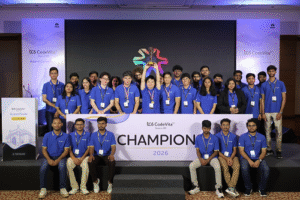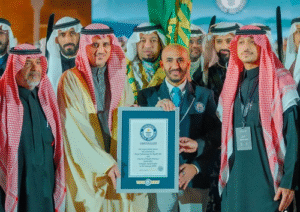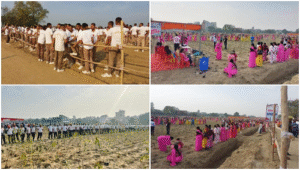Dr. Zakir Husain (1897–1969) made history as the first Muslim to become the President of India, serving from 1967 to 1969. His election to the highest office in the country was a momentous event in India’s democratic history, reflecting the country’s commitment to secularism and inclusivity. Dr. Husain’s presidency is remembered not only for his distinguished political career but also for his deep intellectual and academic contributions to India.
Born: Dr. Zakir Husain was born on February 8, 1897, in Hyderabad, in what was then the princely state of Hyderabad, India, to a family of educators and scholars.
Family Background: He belonged to a distinguished family that valued learning and intellectual pursuits. His father, Fakhruddin, was a prominent scholar, and his mother came from a religious family.
Education: Dr. Husain was an exceptionally gifted student. He completed his early education in Hyderabad and later studied at Aligarh Muslim University (AMU), where he earned a Bachelor’s degree. His pursuit of knowledge led him to Germany, where he continued his higher studies at the University of Berlin, specializing in economics and education.
Dr. Husain’s intellectual brilliance was evident early on. After completing his studies in Germany, he returned to India and became a leading figure in the education sector.
Founding Jamia Millia Islamia: One of his most significant contributions was as a founder of Jamia Millia Islamia, a prominent university in New Delhi, established in 1920. It was a secular institution designed to provide education to all, regardless of caste, creed, or religion. Dr. Husain served as the Vice Chancellor of the university for many years and was instrumental in its growth and development.
Promotion of Secular Education: Dr. Husain strongly advocated for secular education and was a leading proponent of scientific and technical education. He believed that education was the key to nation-building and the empowerment of the Indian populace.
Involvement in the Independence Movement: Dr. Husain was an active participant in India’s freedom struggle, though his involvement was not as front-line as some of the other leaders. He was aligned with Gandhian ideals and worked towards social reform and national integration. He believed in the vision of a united India, where all communities, including Muslims, had an equal role in shaping the future.
Public Service: Apart from his work in education, Dr. Husain was also deeply involved in public service. He held important positions in various organizations and institutions, and was appointed as the Vice-President of India in 1962. His time as Vice-President was marked by his thoughtful approach to governance and his emphasis on education, peace, and national unity.
Election to the Presidency: Dr. Zakir Husain was elected as the President of India on May 13, 1967, following the death of the incumbent president, Dr. Sarvepalli Radhakrishnan. His election was a historic moment, as he became the first Muslim to occupy the position of President in India.
Presidency: As President, Dr. Husain worked to strengthen the democratic fabric of India. He was deeply respected for his calm demeanor, intellect, and strong moral character. His presidency was characterized by:
Secularism: Dr. Husain was a steadfast believer in the secular nature of the Indian state, and his presidency reflected the values enshrined in the Indian Constitution.
Promotion of Education and Culture: Throughout his tenure, Dr. Husain emphasized the importance of education, particularly for underprivileged sections of society, and promoted scientific and cultural advancement.
National Unity: He worked to foster unity among India’s diverse communities, encouraging inclusivity and dialogue.
Death: Dr. Zakir Husain’s presidency was cut short by his untimely death on May 3, 1969, while he was still in office. His sudden passing shocked the nation, and he became the first Indian president to die in office.
Impact of his Death: Following his death, the Vice-President, V. V. Giri, assumed the role of acting President, and soon after, he was elected as the fourth President of India. Dr. Husain’s death was a huge loss for the nation, as he had come to symbolize national integration and the moral conscience of India.
Champion of Education and Secularism: Dr. Zakir Husain’s legacy as an educationist and a statesman is enduring. His emphasis on education, intellectualism, and secularism had a lasting impact on India’s educational and political landscape.
Inspiration for Muslims in India: As the first Muslim President of India, Dr. Husain became an icon for Muslims in the country, demonstrating that individuals from all backgrounds could rise to the highest echelons of leadership in a democratic and secular nation. His life and career also reinforced the ideals of social harmony and unity in diversity.
Jamia Millia Islamia: The Jamia Millia Islamia University, which he helped shape, continues to be one of India’s leading educational institutions, producing countless leaders, scholars, and professionals. The university remains a testament to his vision for an inclusive and progressive society.
Awards and Recognition: Dr. Zakir Husain received several posthumous honors and awards for his contributions to India. He was posthumously awarded the Bharat Ratna (India’s highest civilian award) in 1971, three years after his death, in recognition of his services to the nation and his role as a leader committed to education, national unity, and social progress.
Dr. Zakir Husain was a visionary leader who became the first Muslim President of India. His journey from an academic and intellectual leader to a political figure, culminating in his presidency, reflects his unwavering commitment to education, secularism, and national unity. His tenure as President was brief, but his contributions to Indian society, particularly in the realm of education and public service, have left an indelible mark. He is remembered as a symbol of tolerance, inclusive growth, and the embodiment of India’s secular democracy.







